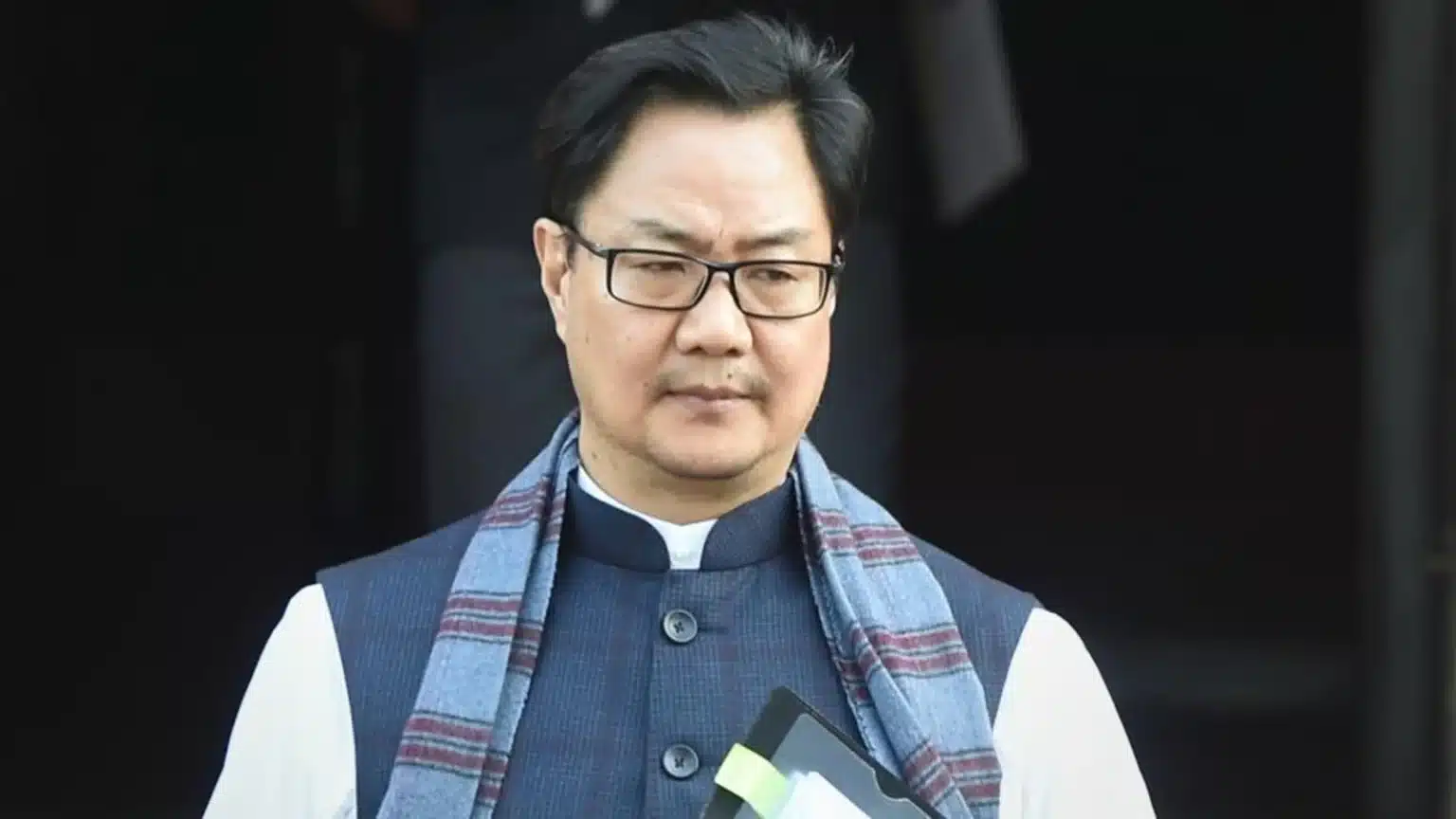
The Union Law Minister has repeatedly stated in public forums that he believes the Collegium System is flawed.
At the India Today Mumbai Conclave on Friday, Rijiju stated, “I am not dismissive of the judiciary or the judges, but I express a reality which is the projection of the opinions of the common people of India…” The Collegium system lacks transparency and accountability. Judges and attorneys concur with this, he added.
Judges spend a lot of time on the entire process of making recommendations for candidates. Also, the procedure involves a lot of politics, he claimed.
Collegium System
This is the system of appointment and transfer of judges that has developed as a result of Supreme Court decisions, and not as an Act of Parliament or a Constitutional provision.
Only the collegium system is used to nominate judges of the higher judiciary, and the government only becomes involved only once the collegium has recommended people.
The Supreme Court collegium is led by the Chief Justice of India and consists of the court’s four senior-most judges. Whereas, the High Court collegium is headed by the Chief Justice and four other senior-most judges of that court.
Names suggested for appointment by an HC collegium do not reach the government until they have received clearance from the CJI and SC collegium.
The judge rejected the proposal to replace it with a “National Judicial Appointments Commission” in 2015 on the grounds that it jeopardized the autonomy of the judiciary.
The National Judicial Appointments Commission Act (NJAC) and the Constitutional (Ninety-Nine Amendment) Act, 2014 were deemed unconstitutional, in October 2015, by a five-judge Constitution Bench based on the 1993 verdict.
Flaws of the Collegium System
- Opaque system
- Scope for Nepotism
- Controversial regarding appointments
- Bypasses a number of promising young judges and attorneys.
“No system can ever be 100%. However, we should certainly strive for a better procedure and approach. The Supreme Court should suggest what the alternate option is when it strikes it down (NJAC),” he said.
Should the court run the country or the elected government? Rijiju said that the judiciary shouldn’t interfere in the executive branch’s purview. The judiciary is trespassing into an area where it isn’t supposed to be if it interferes with executive functions.
“What will the government do if the judiciary begins deciding where roads should be constructed? We urged our Solitiatar General to remind the Delhi High Court that it is none of their (the Court’s) domain after it ordered the formation of a committee to manage COVID affairs during that time. The government is best equipped to handle these difficulties. Do I ever participate in the work of the judiciary? I Don’t. I work to strengthen the judiciary as an institution.” the Union law minister said, mentioning the overreaching steps taken by the judiciary.
“The BJP government led by PM Narendra Modi has upheld the independence of the judiciary during the past eight and a half years”, he said. Further, added that he fully believes that the judiciary’s independence should be supported and safeguarded.

“Deserving candidates should be nominated for the position of judge, not someone you know,” Rijiju remarked. “Although some of what I’ve stated may seem harsh, no judge has yet to tell me that what I’ve said is incorrect. We are a democratic country, and the Indian people are the ones who hold sovereign power over us. People elect the officials who govern the nation,” he added.
Further, also made the argument that Indian judges have a lot of work on their plates. Hence, they need time to focus only on what is required of them rather than performing duties that are not within their purview. “There is a Laxman Rekha on everybody, which shall not be crossed,” he added.
READ MORE













